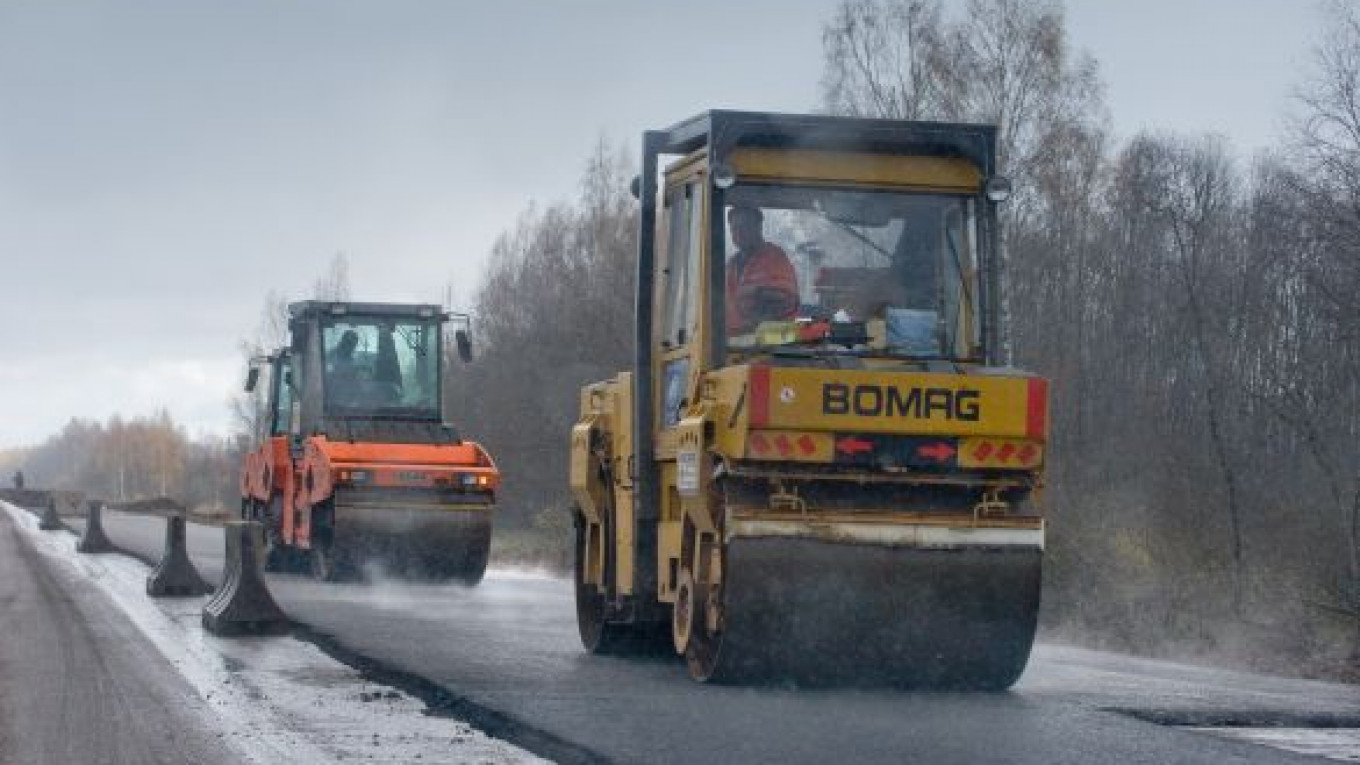Federal Road Agency chief Anatoly Chabunin has conceded that corruption is a problem in road-building, but said a blacklist of unscrupulous contractors was "almost impossible" to put together because companies quickly change their names.
"We have very strong procurement procedures when choosing contractors. But a blacklist just isn't practical. One day they'll be trading as 'OOO Dorogi' and the next day as something else," he told journalists at an end-of-year news conference Tuesday.
Chabunin is the key official overseeing a vast road-building program that includes extending both federal highways and rural road networks. He said both would continue to expand in 2012.
The country will get 220 new kilometers of federal roads, "not counting roads built by the state corporation Avtodor and regional authorities," he said.
Meanwhile the smaller, rural road network will be extended by "not less than 600 kilometers" in 2012, Chabunin promised, up from about 550 kilometers in 2011.
"About 130 billion rubles [$4 billion] will be spent on building federal roads in 2012," Chabunin told reporters, adding that another 114 billion rubles would go to maintenance and repair of the federal network.
He signaled that the government could abandon plans for a second ring road in St. Petersburg, saying "a lot of criticism was leveled at the Moscow ring, and there's no need to repeat that mistake."
The government is sinking billions into a decades-long road-building program aimed at upgrading national infrastructure. Projects include the controversial Moscow-to-St. Petersburg toll road, a new highway connecting Vladivostok and Khabarovsk, and a Europe to China transport corridor running via Kazan and Orenburg.
Spending on road networks and the reliability of contractors came under fire in September, when it emerged that the tarmac on a new highway in the Far East showcased in a road trip by Prime Minister Vladimir Putin had apparently disappeared — leaving only a dirt road.
Putin drove a yellow Lada Kalina down the Chita-to-Khabarovsk highway during a much-publicized drive in 2010. He challenged Transportation Minister Igor Levitin over the vanishing tarmac earlier this year, to be told that about a quarter of the highway was more than 40 years old and needed repair.
The government is struggling to meet the funding requirements of the country's pre-crisis transportation development plan, which called for 5 percent of gross domestic product to be devoted to such projects until 2030.
Earlier this week President Dmitry Medvedev signaled that he may use the Federal Welfare Fund, previously reserved for pensions, to help make up the shortfall.
A Message from The Moscow Times:
Dear readers,
We are facing unprecedented challenges. Russia's Prosecutor General's Office has designated The Moscow Times as an "undesirable" organization, criminalizing our work and putting our staff at risk of prosecution. This follows our earlier unjust labeling as a "foreign agent."
These actions are direct attempts to silence independent journalism in Russia. The authorities claim our work "discredits the decisions of the Russian leadership." We see things differently: we strive to provide accurate, unbiased reporting on Russia.
We, the journalists of The Moscow Times, refuse to be silenced. But to continue our work, we need your help.
Your support, no matter how small, makes a world of difference. If you can, please support us monthly starting from just $2. It's quick to set up, and every contribution makes a significant impact.
By supporting The Moscow Times, you're defending open, independent journalism in the face of repression. Thank you for standing with us.
Remind me later.






